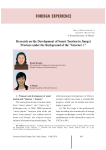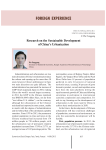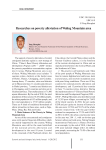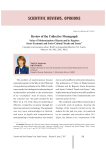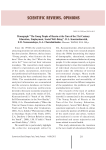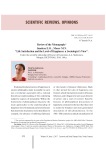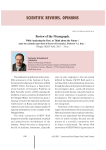Economic and Social Changes: Facts, Trends, Forecast @volnc-esc-en
Статьи журнала - Economic and Social Changes: Facts, Trends, Forecast
Все статьи: 1763
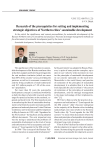
Статья научная
In the article the significance and current preconditions for sustainable development of the Russian Northern cities are considered and analyzed. Necessity of strategic management methods use for achievement of sustainable development goals by the towns is proved.
Бесплатно
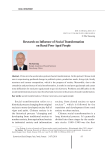
Research on influence of social transformation on rural poor aged people
Статья научная
China is in the acceleration period of social transformation. In this period, Chinese rural area is experiencing profound change in political system, production mode, living style, family structure and income composition, which is the progress of society. Meanwhile, due to the complexity and persistence of social transformation, it results in rural poor aged people and causes some difficulties for rural poor aged people to get rid of poverty. Problems and difficulties in the social transformation process must be solved and overcome in the process of social transformation.
Бесплатно
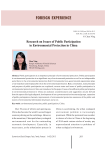
Research on issues of public participation in environmental protection in China
Статья научная
Public participation is an important principle of environmental protection. Public participation in environmental protection is an significant way of environmental protection as well as an indispensable social force in the environmental protection field. Environmental non-governmental organization plays a very important and irreplaceable role in the environmental protection. Basic connotation, main principles and purposes of public participation are explained; current status and issues of public participation in environmental protection in China are introduced in this paper. Causes of insufficient public participation in environmental protection in China are analyzed; countermeasures and suggestions are put forward from the aspects like legal safeguard, development of non-governmental environmental groups, expansion of public participation channels, improvement of environmental protection awareness of the public and system of environmental information disclosure and so on.
Бесплатно
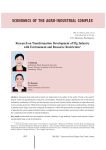
Research on transformation development of pig industry with environment and resource restriction
Статья научная
Adequate food and pork products are important to the safety of the world. China is the world's largest country in pig production and pork consumption. Pig industry plays a significant role in the animal husbandry production of China and has become one of most dynamic pillar industries in agriculture and rural economy at present. With the increasing environment and resource restriction, pig breeding is heading to standardized, large-scale and ecological development, which will promote the ecological transformation of pig industry, ensure animal products safety, ecological environment safety and resource safety and improve the comprehensive benefit of animal husbandry.
Бесплатно
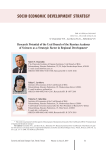
Статья научная
The article brings to the fore the issues related to identifying and assessing the relationship between the development of the research sector and the innovative growth of regions. It is shown that the key feature of the knowledge generation sector is research potential, the essence of which is directly related to the level of development of fundamental and applied research, the degree of their implementation in the material sector of the economy. We reveal that at present the research is carried out, which affects various aspects of the assessment of research potential, identifying the trends in its development and mechanisms of its implementation at different levels. The comparative analysis carried out in the article shows that all methodological approaches include a fairly identical set of indicators characterizing quantitative characteristics and their dynamics; many of them use aggregated indices that make it possible to compare countries and regions. In addition to the existing methods, our own approach proposes to analyze not only quantitative, but also qualitative characteristics in order to create conditions for the formation of the environment for innovative development of the region. Thus, on the example of the Ural Branch of the Russian Academy of Sciences we show that the priority directions of research development should not only correspond to the global and national scientific agenda, but also address the issues of innovative development of the regions in which research centers are located. The article presents the analysis of the regions in which scientific institutes and centers of the Ural Branch of RAS are located; we make a classification of these regions, highlighting the regions-innovators, regions-followers and catching up regions; priorities of innovation and technological development are identified for each region and then they are compared with the priorities of the Ural Branch of RAS. We put forward the thesis that in addition to the concentration of researchers the most important condition for the generation of knowledge and for the creation of breakthrough technologies is a high concentration of investment resources in the field of science. On the example of the Ural Branch of the Russian Academy of Sciences we present the data on the need for investment in the development of scientific organizations and scenarios for their development.
Бесплатно
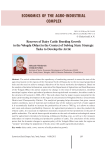
Статья научная
The article substantiates the expediency of conducting research to assess the state of the agro-food system in the regions of the European North of Russia due to the increased geopolitical risks and the need to achieve strategic objectives of the Arctic territories development. Based on the analysis of statistical information, materials of the Department of Agriculture and Food Resources of the Vologda Oblast the author analyzes the change in the value of milk production, identifies municipal regions where agricultural producers boost agricultural economics, describes trends in the structure of livestock in 2000-2014. The work shows that the major resource potential for the dairy cattle breeding development in the region is concentrated in Vologdsky District, Gryazovetsky District and Cherepovetsky District. The analytical grouping helps determine that given current market conditions, state of material and technical base of the industry and level of state support it is economically feasible to increase the productivity of cows to 7083 kg, as it allows to reduce unit costs and enhance profitability...
Бесплатно
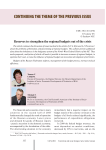
Reserves to strengthen the regional budgets out of the crisis
Статья научная
The article continues the discussion of issues touched in the articles by V.A.Ilyin and A.I. Povarova, about the problems of formation and functioning of regional budgets. The authors present additional data about the imbalances in the budgetary system of the North-West Federal District of the RF. They make proposals, realization of which will make it possible to increase revenues of regional budgets, to optimize their costs, to raise the influence of regional budgets on innovation development of territories.
Бесплатно
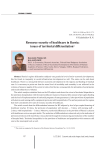
Resource security of healthcare in Russia: issues of territorial differentiation
Статья научная
Russia’s regions (federation subjects) vary greatly by level of socio-economic development; this fact leads to inequality in social infrastructure development as well. The same can be said about healthcare. There is a strong link between economic development in the regions and funding of medical care. It is necessary to point out that the actual level of morbidity and mortality is not reflected in the volumes of resource supply of the sector in terms of territories; consequently, the principles of social justice and social solidarity are violated. The article analyzes statistical data on the RF subjects and shows the extent of territorial disparities in the provision of population with the main healthcare resources: financial (the amount of per capita funding and the level of implementation of territorial programs of state guarantees), labor (provision of population with doctors and nursing staff), equipment (provision with hospital beds). The author points out the regions that show consistently low rates of resource security of healthcare...
Бесплатно
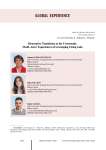
Restorative transitions at the crossroads: Multi-actor experiences of leveraging living labs
Статья научная
The research deepens on the notion of transformative governance as a means to enhance individual and collective responsibility towards positive climate change. It is rooted on two main frameworks: a) the triple transition – green, digital and social – with its multidimensional perspective to address the intricacies of evolving environmental and socio-economic and geopolitical challenges; b) the Anthropocene epoch that reflects and triggers the capacity of humans to imprint a deep impact on the planet. More holistic, multi-player and cross-level co-design strategies are proving to ease the upheaval of new forms of living labs and the readiness of regional innovation ecosystems for addressing triple transition interconnected challenges. The study examines solutions that generate negotiated visions and more proactive participatory multi-actor engagement. It argues that climate neutrality and regeneration require active quadruple helix community involvement and citizen-led action. This study uniquely positions individual and collective responsibility as the central drivers of sustainable change. The research deepens on more synergetic strategies for aligning transformative governance around ecosystem-based visions and layered, interactive and multi-helix participatory participation. The research reveals that harnessing and maximizing a systemic triple transition approach – (digital, social and green and) and multi-actor collaborative approaches, novel forms of living labs can be developed for achieving higher levels of sustainability, positive and even regenerative impacts able to shift towards more resilient future urban, peri-urban and rural settings.
Бесплатно
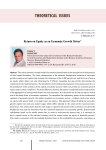
Return on equity as an economic growth driver
Статья научная
The article presents a simple model of economic growth based on the description of the dynamics of fixed capital formation. The main characteristic of the obtained fundamental equation of economic growth consists in an explicit link between the indicators of the GDP growth rate and the level of return on equity which allows not only obtaining the T. Piketty inequality, but also strictly determining the conditions for its implementation. The peculiarity of the fundamental equation of economic growth is in the postulation of the primacy of the capital circulation process which can provide an economic growth regime under certain conditions. The main difference between the author’s model and earlier constructions is the aggregation of most growth factors into one parameter. It is the profit rate (return on equity) which acts as the main driver of economic expansion. To strengthen the explanatory power of the fundamental equation of economic growth, the author considers two economic sectors - ordinary (with a low return on equity) and special (with a very high return on equity). This approach allows dividing the economic growth regime into early and mature stages which differ radically in the values of the macroeconomic parameters. The article shows that the early stage is typical for the period of the economy’s exit from the Malthusian trap and the transition from the industrial depression to sustainable growth. Experimental calculations based on the model proves that, in order to overcome the poverty trap, it is necessary to have a special sector in the national economy with the annual return on equity of hundreds percent. This result is consistent with the available historical data on the profitability of economic operations at a critical development stage - the change of the feudal system intto the capitalist one. The calculations also demonstrate that, for the mature stage of economic growth, such high requirements for business profitability are not imposed, and the thesis about the need for a special sector loses its significance. Moreover, the fundamental equation of economic growth allows outlining the final stage contours of the capitalist management mode.
Бесплатно
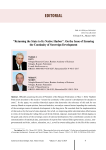
Статья научная
Officially assuming the post of President of the Russian Federation on May 7, 2024, Vladimir Putin drew attention to the need to “ensure the continuity of the country’s development for decades to come”. In the paper, we consider historical aspects that determine the relevance of this task for our country. Based on expert opinion, facts and statistics, we analyze current factors impeding the continuity of the sovereign course of national development in the long term. We conclude that the implementation of this task set by the head of state depends, first of all, on improving public administration effectiveness in terms of reorienting the ruling elites at all levels (federal, regional, municipal) from liberal dogmas to the goals and criteria of the sovereign course of national development. Our contribution consists in the systematization of statistical data, assessments of experts from various fields (government, science, non- governmental activities, culture, education, etc.), as well as events taking place in the life of the country and beyond, which allows us to draw a scientifically substantiated conclusion about the importance of ensuring the continuity of the course of national development implemented by the RF President as a strategic goal intended for the long term after the completion of the next historical round of the civilizational conflict with the Collective West on the terms guaranteeing Russia the possibility of safe and sovereign development in the 21st century.
Бесплатно
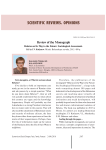
Review of the monograph Belarus on its way to the future: sociological assessment
Рецензия
Бесплатно

